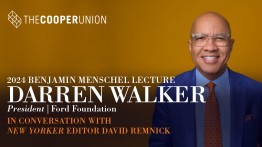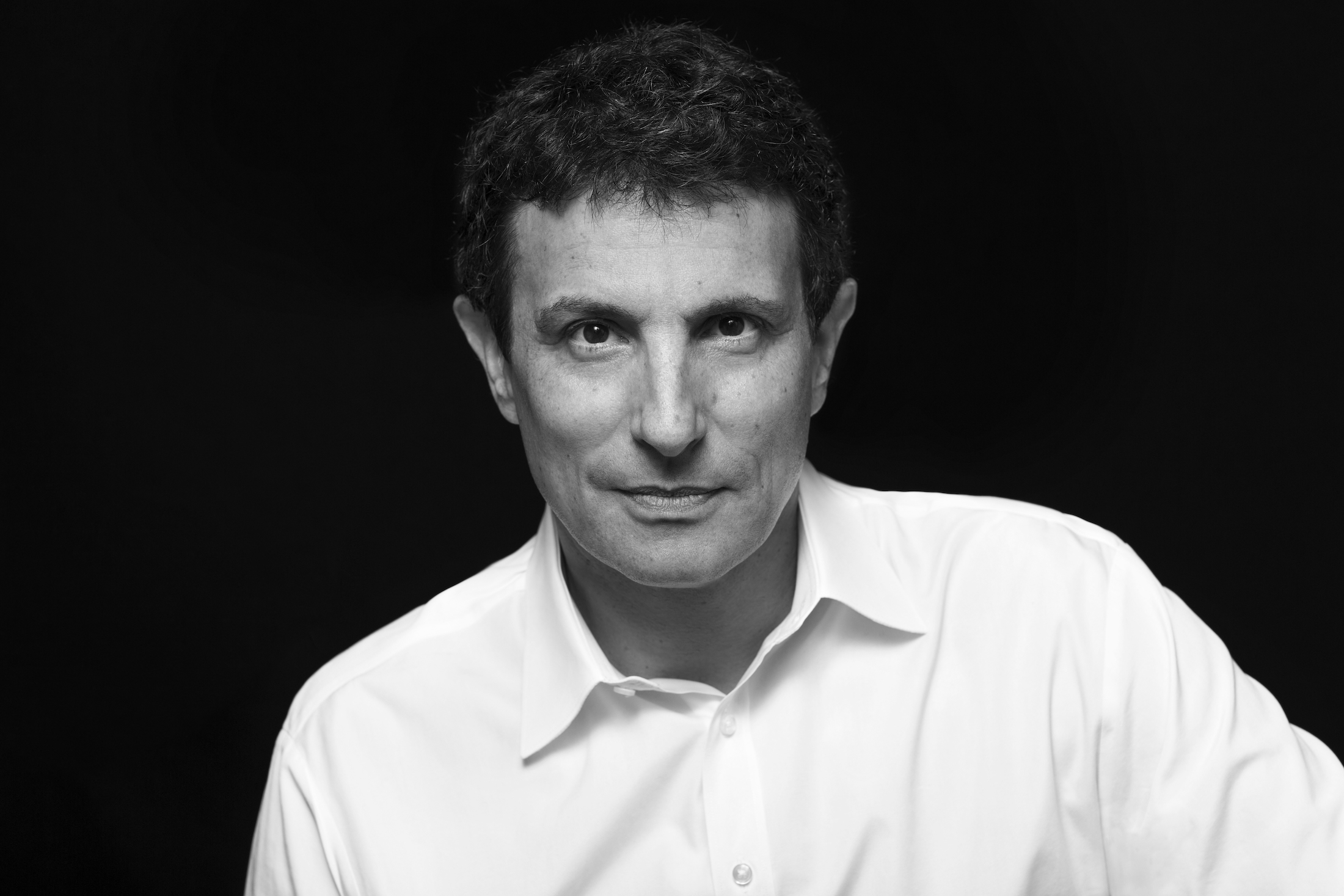Darren Walker Gives the 2024 Benjamin Menschel Distinguished Lecture
Monday, March 4, 2024, 6:30 - 8pm

The 2024 Benjamin Menschel Distinguished Lecture will feature Darren Walker, president of the Ford Foundation, who will speak on the promise of America, our aspirations for democracy and social progress, and the role of philanthropy in supporting social justice. David Remnick, editor of The New Yorker, will join Walker for a conversation following the talk.
Registration required. Please note this free event is first-come-first-served, and an RSVP does not guarantee admission.
A philanthropy leader for more than twenty years, Walker serves as president of the Ford Foundation, a $16 billion international social justice philanthropy. Under his leadership, the Ford Foundation became the first non-profit in US history to issue a $1 billion designated social bond to stabilize non-profit organizations in the wake of COVID-19. That year he was named 2020 Philanthropy Innovator of the Year by the Wall Street Journal. Before joining Ford, Walker was vice president at the Rockefeller Foundation, overseeing global and domestic programs. In the 1990s, he was COO of the Abyssinian Development Corporation, Harlem’s largest community development organization. He co-founded both the US Impact Investing Alliance and the Presidents’ Council on Disability Inclusion in Philanthropy. Educated exclusively in public schools, Walker was a member of the first Head Start class in 1965 and received B.A., B.S., and J.D. degrees from the University of Texas at Austin. Among his many other honors include being named to the Order of the British Empire for services to UK/US relations by Her Majesty, Queen Elizabeth II and being was awarded France’s highest cultural honor, Chevalier des Arts et des Lettres, for leadership in the arts.

David Remnick has been the editor of The New Yorker since 1998 and the author of seven books including the Pulitzer Prize-winning Lenin’s Tomb. Under Remnick’s leadership, The New Yorker has become the country’s most honored magazine. It has won more than fifty National Magazine Awards during his tenure, including multiple citations for general excellence. In 2016, The New Yorker became the first magazine to receive a Pulitzer Prize for its writing, and now has won six Pulitzers, including the gold medal for public service. Remnick, who was elected to the American Academy of Arts and Letters in 2016, also serves as the host of the magazine’s national radio program and podcast, “The New Yorker Radio Hour.”
THE BENJAMIN MENSCHEL DISTINGUISHED LECTURESHIP is made possible through the generosity of the Horace W. Goldsmith Foundation. This highly regarded endowed lecture series has provided a public platform for some of the most renowned writers, scientists, and prominent intellectuals of our time. Past lecturers include Dr. Atul Gawande, Wynton Marsalis, and Henry Louis Gates, Jr. It takes place in The Cooper Union’s historic Great Hall, which has stood for more than a century as a bastion of free speech and a witness to the flow of American history and ideas.
Located in The Great Hall, in the Foundation Building, 7 East 7th Street, between Third and Fourth Avenues




